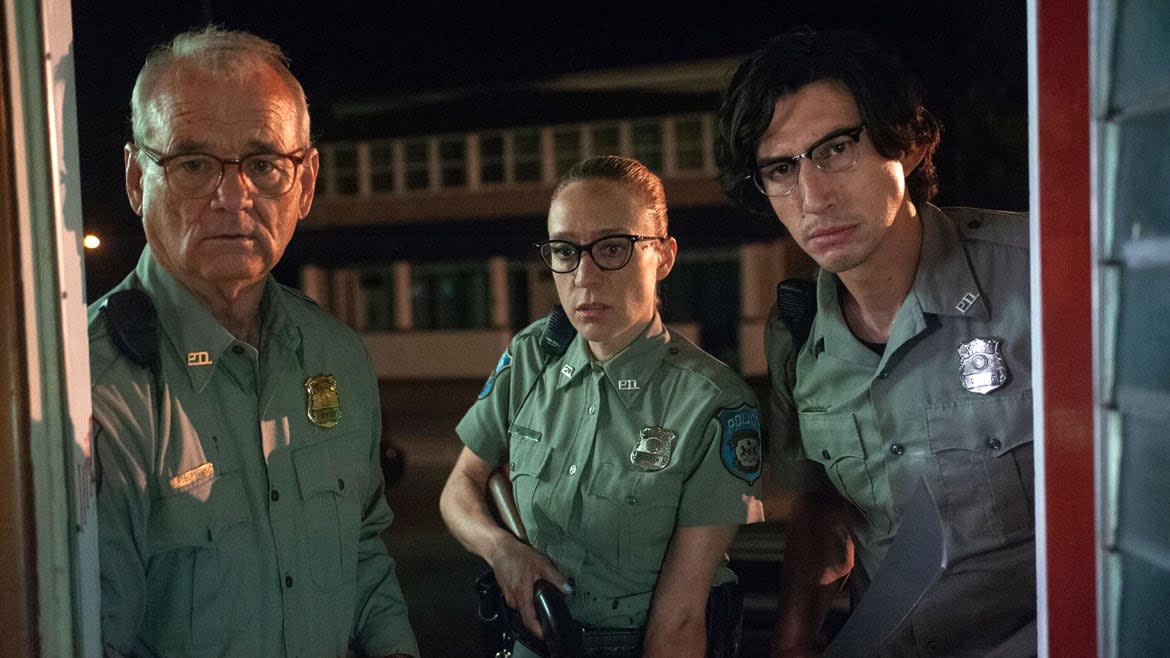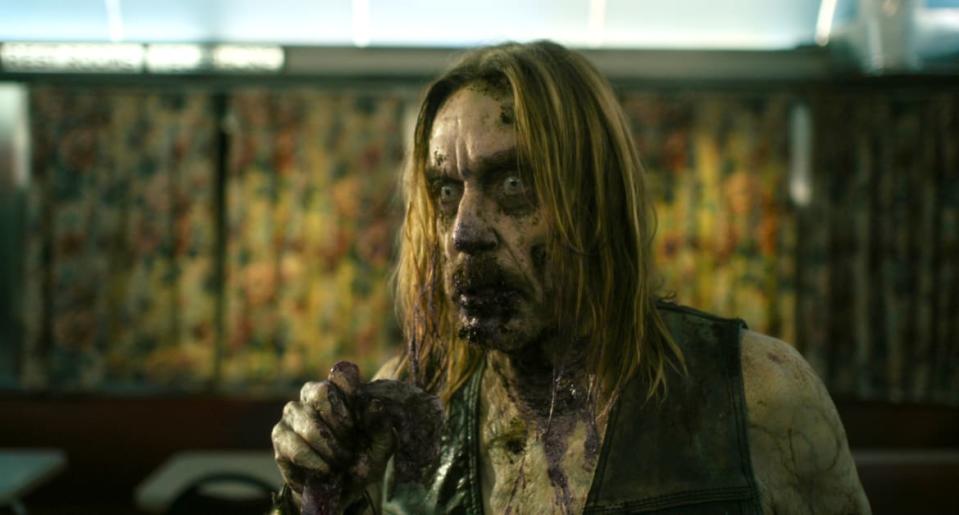Bill Murray and Adam Driver Fight Zombies in MAGA-Infested Small-Town America

Massively self-aware and not nearly as audacious as it could have been, The Dead Don’t Die, Jim Jarmusch’s comic zombie film, proved to be a surprisingly innocuous choice to open the 72nd Cannes Film Festival.
Although no one would have expected Jarmusch, an emblematic senior statesman of American independent cinema, to have helmed a traditional horror movie, The Dead Don’t Die is stymied by an intermittent desire to eviscerate the conventions of zombie movies and a countervailing urge to pay homage to zombie pioneer George Romero, whose landmark films, The Night of the Living Dead and Dawn of the Dead, are affectionately referenced throughout this often too-smarmy-for-its-own-good pastiche.
The film is a cornucopia of cinephilic references. Centerville, the three-cop town where the action takes place, is a sly tribute to the redneck-ridden burg enshrined in the late Frank Zappa’s 200 Motels, an allusion that will probably go over the heads of all but a small coterie. Jarmusch also fondly evokes memories of bygone Hollywood from the outset by naming the chief of police, played languidly by Bill Murray, Cliff Robertson—the rugged star, perhaps not coincidentally, of John Carpenter’s (Carpenter is being honored this year at Cannes by the Director’s Fortnight sidebar) similarly post-apocalyptic cult film, Escape from L.A.
Tilda Swinton Blasts Putin at SXSW, Discusses ‘Only Lovers Left Alive’ and ‘My Cousin’ David Bowie
John Carpenter on ‘Halloween’ and Why ‘They Live’ Is Frighteningly Relevant Under Trump
Like cops in most horror and science-fiction films, Robertson, as well as his subordinates Ronald Peterson (Adam Driver) and Mindy Morrison (Chloe Sevigny) are blissfully incompetent. Unlike the stolid policemen in most genre movies, this hapless trio is remarkably benign. When confronted early in the film with the antics of Hermit Bob (Tom Waits), perhaps the most eccentric denizen in a town chock full of eccentrics, Robertson and Peterson tone down their aggression and dismiss this superficially menacing character as harmless.
It’s certainly intriguing that Jarmusch emulates Romero (whose films the late critic Robin Wood defended as staunchly anti-capitalist) to the extent that he is more interested in political and social commentary than subjecting us to an undiluted gore-fest—a laudable aim that stands in stark opposition to the manic melodramatics of The Walking Dead. The problem is that Jarmusch’s political gloss on the zombie apocalypse is rather scattershot and frequently undermined by tongue-in-cheek attempts at humor that don’t always hit their targets. In an early scene, the racial tensions of the Trump era are tantalizingly raised as two future zombies, Hank (Danny Glover) and “Farmer Miller” (Steve Buscemi) uneasily share the counter at the town’s diner. Buscemi’s character is the proud owner of a “Make America White Again” cap and complains, as Hank looks on silently, that his coffee is “too black.” There’s no follow up, though, to this fleeting jab at MAGA-style racism.
Another stab at contemporary relevance is provided by the fact that the zombie onslaught appears to have been generated by polar fracking—a decision that, while predictably celebrated by the authorities, appears to have led the Earth astray sufficiently to depart from its axis and bring on an international swarm of flesh-eating ghouls. Of course, this sort of deus ex machina is part and parcel of a plethora of horror films. In this context, climate change is not much different from the arrival of seed pods in Don Siegel’s far more disturbing Invasion of the Body Snatchers.
Jarmusch’s most successful nod to Romero’s legacy is probably a series of scenes in which, as in Dawn of the Dead, “the undead” recollect their love for cherished material possessions in a strangely poignant fashion. Carol Kane, metamorphosed into a zombie, can do nothing but utter the name of what was once presumably her favorite wine: Chardonnay. Other zombies are besotted with their smart phones and plaintively bellow the word “Wi-Fi.”

Iggy Pop in Jim Jarmusch's 'The Dead Don't Die'
Jarmusch coaxes an uneven set of performances from his star-laden cast. Bill Murray (introduced as a “ poker-faced” American by the emcee at Cannes’s opening ceremony) is peculiarly flat, and strangely unfunny, as the slow-witted police chief. Oddly enough, Adam Driver is much more amusing as his resourceful sidekick, who knows that this scenario will end badly because “he’s read the script.” Tilda Swinton steals the film as Zelda Winston, a katana-wielding Scottish undertaker who is much savvier than any of the cops, even though this character obviously exists only because Jarmusch wanted to have us relish Swinton’s chameleon-like talents in a plum role.
Ultimately, however, Jarmusch’s mania for gratuitous self-reflexivity is the film’s undoing. It’s cute that Selena Gomez, in a small part, drives into town behind the wheel of a Pontiac LeMans, the same car featured in The Night of the Living Dead. It’s equally cute when Bobby (Caleb Landry Jones), a movie-crazy gas station clerk, spots the reference and then goes off on a tangent describing the architecture of Psycho’s Bates Motel. Yet, as Danny, a motel owner played by Larry Fessenden (himself a director of cult horror films) observes, there’s something suspect about citified “hipsters” and their love of irony.
The Dead Don’t Die, despite some sporadically enjoyable satirical interludes, suffers from Jarmusch’s desire to pay homage to Romero’s radical grittiness while winking at the audience, a tacit admission that he’s too cool to take the zombie genre seriously. It’s also possible to assert that the zombie genre is played out and shouldn’t be taken seriously. In that case, it’s even harder to defend this mildly entertaining, but ultimately lame, movie.
Get our top stories in your inbox every day. Sign up now!
Daily Beast Membership: Beast Inside goes deeper on the stories that matter to you. Learn more.

